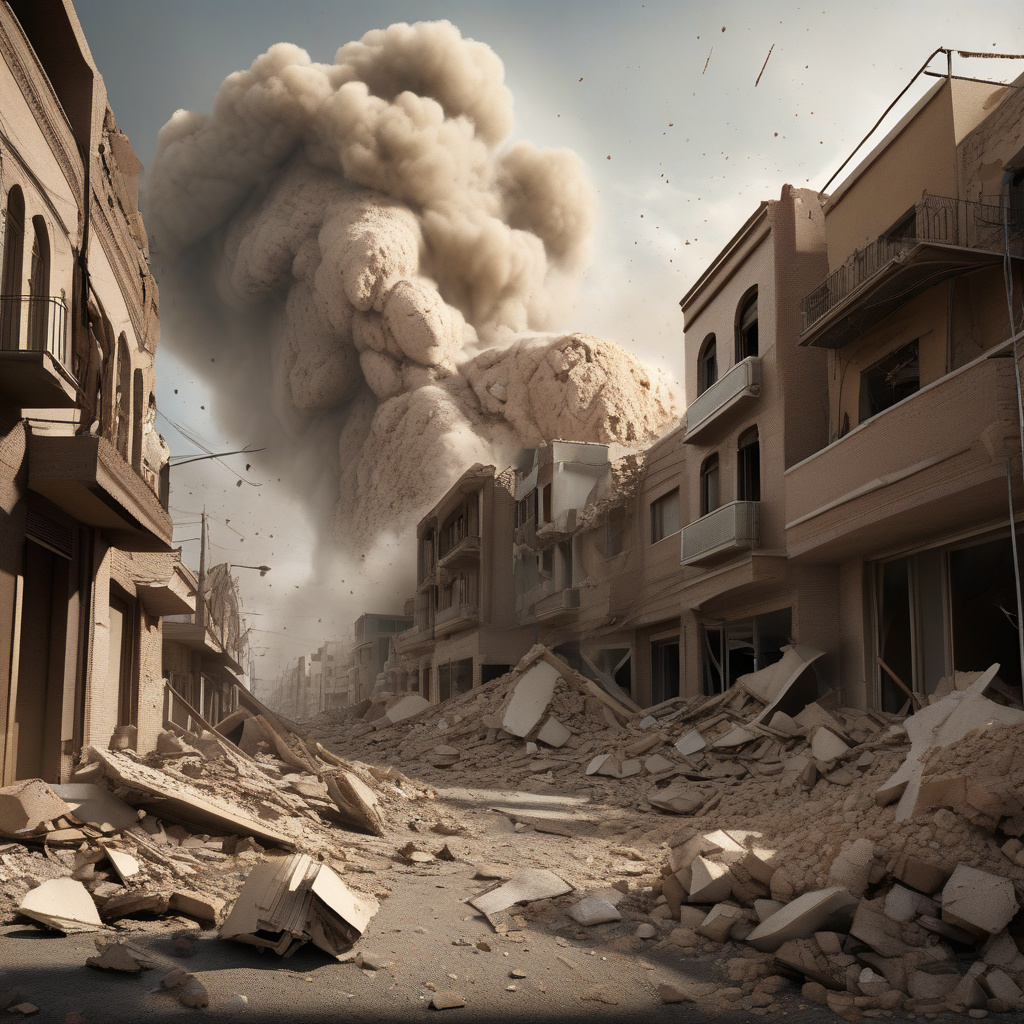When Disaster Strikes: Analyzing the Impact of the 5.2 Earthquake in Central Iran
As tensions continue to rise in the Middle East, an unexpected event shook central Iran to its core. A 5.2 magnitude earthquake struck late Thursday, adding to the existing turmoil in the region. The seismic activity jolted an area already on edge due to growing hostilities with Israel, further complicating an already complex situation.
The earthquake, with its epicenter near the city of Borazjan in Bushehr province, sent shockwaves throughout the region. Reports indicate that several buildings were damaged, and at least 34 individuals were injured as a result of the tremors. The timing of the earthquake couldn’t have been more precarious, considering the heightened tensions in the area.
Central Iran is no stranger to seismic activity, being located on major fault lines that make it prone to earthquakes. However, the recent tremor comes at a particularly sensitive time, with Iran facing increasing pressure from various geopolitical fronts. The country’s ongoing conflicts and power struggles have put it in a vulnerable position, both politically and socially.
The earthquake serves as a stark reminder of the fragility of life in a region constantly grappling with instability. It highlights the need for robust disaster preparedness and response mechanisms to mitigate the impact of such natural disasters. The Iranian government’s ability to effectively manage the aftermath of the earthquake will undoubtedly be closely watched, both domestically and internationally.
Moreover, the earthquake raises questions about the broader implications of such events in the context of escalating tensions with Israel. As geopolitical tensions continue to simmer, natural disasters like earthquakes add another layer of complexity to an already volatile situation. The intersection of environmental factors and political dynamics underscores the interconnectedness of global events.
In times of crisis, solidarity and cooperation are essential to navigate the challenges ahead. The recent earthquake in central Iran underscores the importance of regional collaboration in responding to emergencies and building resilience against future disasters. It is a stark reminder that, in the face of adversity, unity and preparedness are key to overcoming obstacles.
As central Iran grapples with the aftermath of the earthquake and confronts the broader geopolitical implications of the event, one thing remains clear: the need for vigilance and proactive measures to address both natural and man-made challenges. The resilience of the Iranian people in the face of adversity is a testament to their strength and determination to overcome adversity.
In conclusion, the 5.2 earthquake that rattled central Iran serves as a wake-up call for the region and the world at large. It is a stark reminder of the unpredictable nature of life and the urgent need for comprehensive disaster management strategies. As Iran navigates through these challenging times, it is crucial for all stakeholders to come together in a spirit of cooperation and solidarity to build a more secure and sustainable future.
#Iran #Earthquake #Geopolitics #DisasterManagement #MiddleEastSecurity












